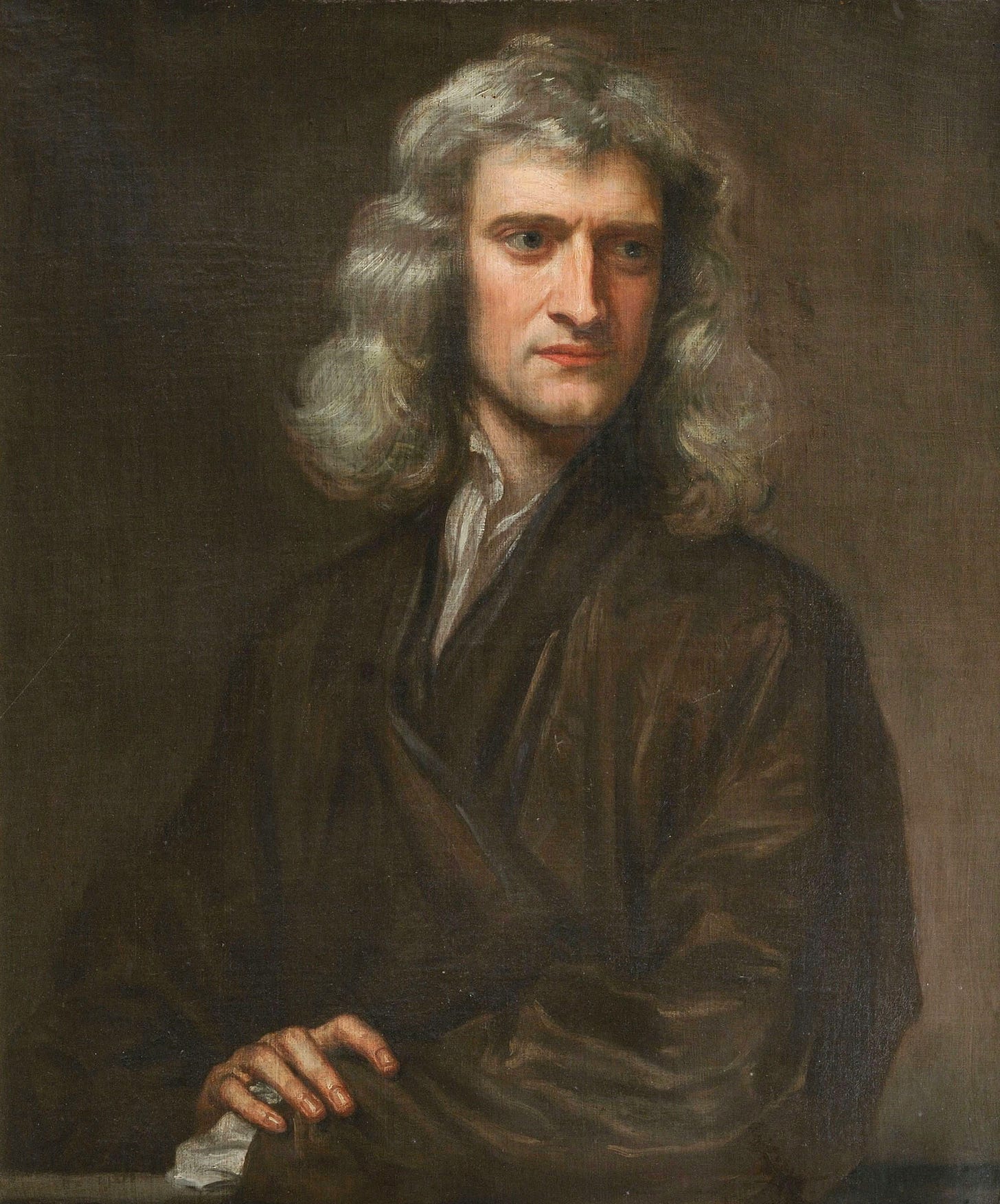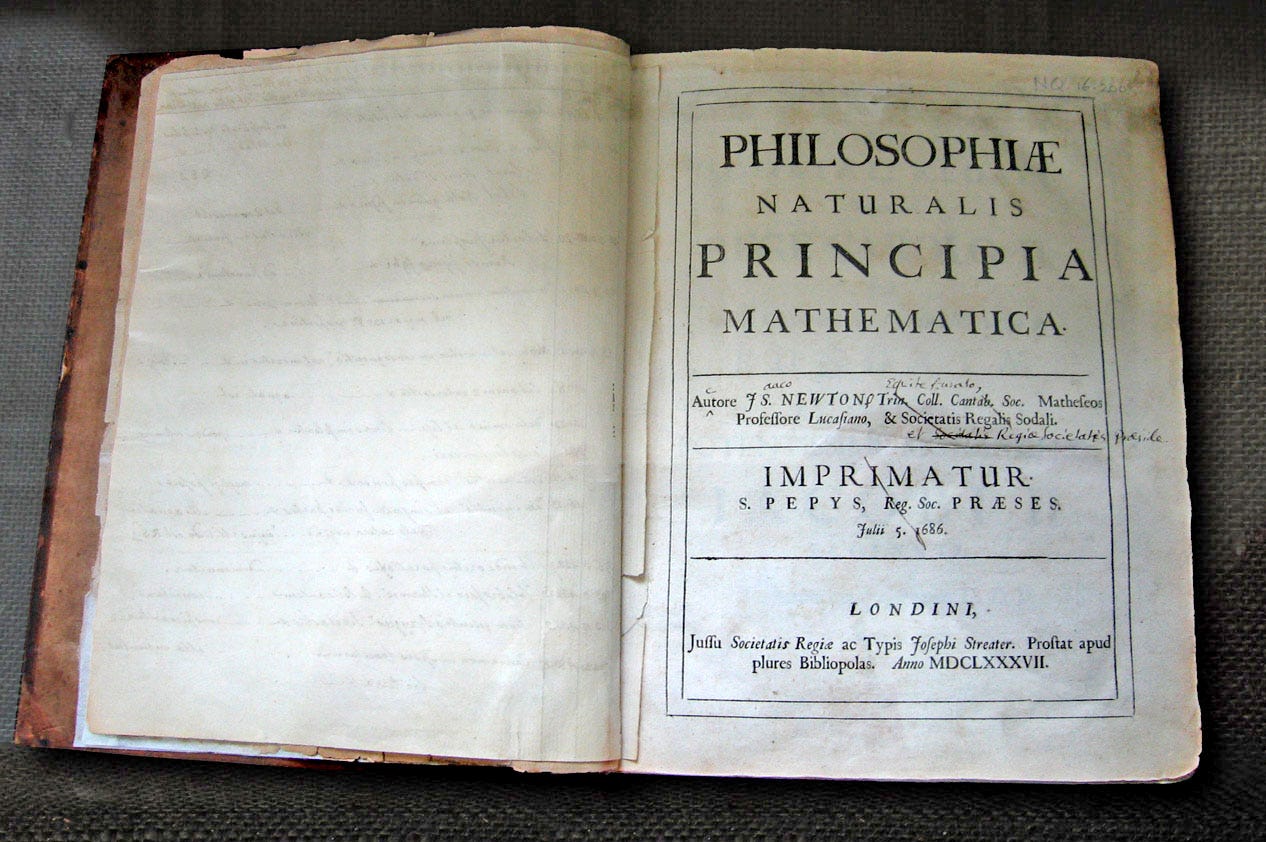January 4, 1643 - A Star Fell to Earth - Isaac Newton's Birth
Enter Isaac Newton, the man who would redefine the universe.
On a chilly January 4 in 1643, in a small English town, a baby boy was born.
Little did the world know, this tiny, wailing infant named Isaac Newton was destined to unlock the secrets of the cosmos.
Picture this: In a universe where the stars were still mysteries and the laws of nature whispered secrets, Newton was the guy who said, “Hold my apple, I got this.”
Growing up, Newton was not your average Joe.
He was the quiet kid in the back of the class, doodling in his notebook, lost in his own world.
But oh, what a world it was!
Fast forward a few years, and this daydreamer would shake the pillars of science.
Newton was like the Sherlock Holmes of physics and mathematics.
When the world threw questions, he threw back laws.
His three laws of motion?
They were the "Elementary, my dear Watson" of the scientific world.
He looked at a moving object and laid down the rules of the game like a boss.
But there's more to this legend.
Gravity – that invisible force that keeps your feet on the ground and stops you from floating off into space when you jump – Newton made sense of that too.
That fabled apple falling on his head?
Whether it's true or not, it symbolizes the moment Newton went, “Aha!” and began scribbling the law of universal gravitation.
Now, let’s talk about his magnum opus, 'Philosophiæ Naturalis Principia Mathematica' or 'Principia' for short.
This wasn't just a book; it was a revolution printed on paper.
In it, Newton laid down the laws of motion and gravity, turning the chaos of the cosmos into an elegant dance of celestial bodies.
He turned the universe into a symphony, and he was the conductor.
He saw the world through a lens like no other.
Newton could uncover truths that eluded people for eons.
Yet it wasn't until his eyes saw them, that we finally understood the obvious.
Fast forward to today, and Newton's fingerprints are all over our world.
Ever seen a satellite dish?
Thank Newton for understanding gravity.
Watching a rocket launch?
Tip your hat to Newton's laws of motion.
Every time you use GPS to avoid getting lost, remember, it's all thanks to Newton's understanding of physics.
But it's not just about science.
Newton taught us to question, to wonder, and to explore.
He showed us that the universe isn't a mystery to fear, but a puzzle to solve.
He took the torch of knowledge and lit a fire that continues to burn brightly today.
So, on January 4, as we remember Isaac Newton's birth, let's celebrate more than just a man.
Let's celebrate a mind that looked at the world and saw not what it was, but what it could be.
Newton didn't just read the book of nature; he wrote its glossary.
And we, curious souls wandering this strange, beautiful world, are forever in his debt.
And that, my friends, is the story of Isaac Newton.
Born on this day, he was more than just a scientist; he was a pioneer, a thinker, and a visionary who reshaped our understanding of the universe and left a legacy that continues to inspire and enlighten.



